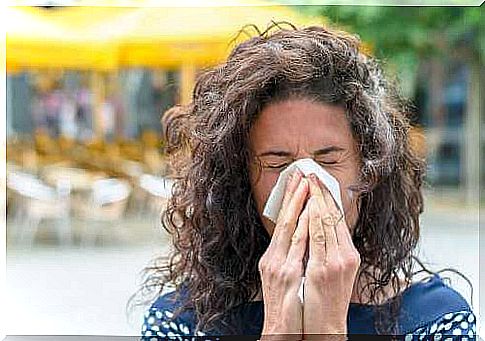Too High Room Temperature: Health Consequences
Heating helps us to fight the cold in autumn and winter, but it can also be harmful to health if it is set incorrectly. Learn more about it!

The ideal room temperature varies from person to person, because everyone’s feeling of cold is different. Factors such as origin, constitution and state of health play a role.
In general, however, a feeling of cold is usually noticeable at a room temperature of below 20 degrees Celsius, which is even more pronounced at cooler temperatures.
This feeling also depends on other factors, such as the humidity and the air pressure. A temperature of 10 degrees Celsius with high humidity is not the same as cold in a dry environment.
Regardless of the outside temperature, the feeling is not the same whether you are standing still or moving. When there is no physical activity, the cold is felt much more strongly because the cells do not have an active metabolism and do not generate any heat.
It is therefore important to regulate the heating correctly so as not to freeze. But too much of a good thing is by no means an advantage. A room temperature that is too high is also detrimental to health.
Temperatures between 20 and 25 degrees Celsius with a humidity of around 50% are ideal. It shouldn’t be more.
Room temperature too high: consequences depending on the type of heating
Two heating methods are particularly harmful when used excessively:
- Heating with firewood
- and with air conditioning
When using firewood, excessive heating can produce toxic gases. When wood is burned, the stored carbon dioxide is released.
The carbon dioxide is an exhaust gas for humans. In other words, the body emits carbon dioxide and needs oxygen. Therefore , if the ventilation is poor, wood heating can cause poisoning.
The smoke from very strong wood heating systems also contains gases that are described as heavy. These gases are poisonous and, if inhaled, cause headaches, nausea, vomiting and even irritation of the respiratory tract.
It is important that the smoke outlet of a wood heating system is installed correctly. But even under the best installation conditions, wood can contain and release specific natural substances associated with allergies and asthma, such as pollen.
The other method that can be dangerous if used excessively is air conditioning. Air conditioning leads to very dry air, which has various consequences.
The skin and mucous membranes in particular suffer if the air is too dry. At the same time, the generated air flow mobilizes particles that can exacerbate the allergic symptoms in asthmatic or allergic people.

Too high room temperature: negative consequences
A room temperature that is too high can have the following consequences, regardless of which heating system is used:
- Respiratory infections: The dry environment with a lack of moisture and the dry mucous membranes of the respiratory tract are an incentive for bacteria and viruses. Children are usually the most vulnerable in such situations. A room humidifier with a filter can reduce the risk.
- Poor recovery: The high room temperature during the night makes recovery difficult. Above 20 ° C, the body is not in the best shape to relax the muscles and achieve a comfortable state of sleep. The very low humidity also changes the breathing rhythm in the resting phase.
- Allergies and dermatitis: Excessive heating dries out the skin and exacerbates the symptoms of dermatitis. At the same time, the heat source creates a current of air that distributes allergic particles such as dust, pollen and mites.
- Headache: Headaches caused by too high room temperatures are quite common. When the temperature is very high for a long period of time, we feel a sluggishness that comes from the dilation of blood vessels. The intense heat lowers blood pressure and less blood gets to the brain, which leads to the unpleasant symptoms.
- Weight gain: Sleeping at very high temperatures is associated with weight gain. This happens because the body does not burn the stored fat at high temperatures. During the night is the time when fat burning is activated, but when the room temperature is too high it doesn’t.

The problem of toxic substances
One of the biggest health risks is toxic substances. These substances are released by the heating system and represent a great danger.
One of these substances is carbon monoxide. This gas is odorless, which makes it difficult to see if it is caused by poor combustion. It slowly displaces the oxygen from the environment and the blood and poisons people.
Carbon monoxide poisoning causes dizziness, fainting, nausea, and headaches. As a defense method, breathing increases dramatically to take in oxygen. If the problem is not resolved quickly, it can be fatal.
The other dangerous gas is nitrogen dioxide. It is also caused by poor combustion in heating appliances and is also odorless. It is extremely irritating and changes the mechanics of breathing.









